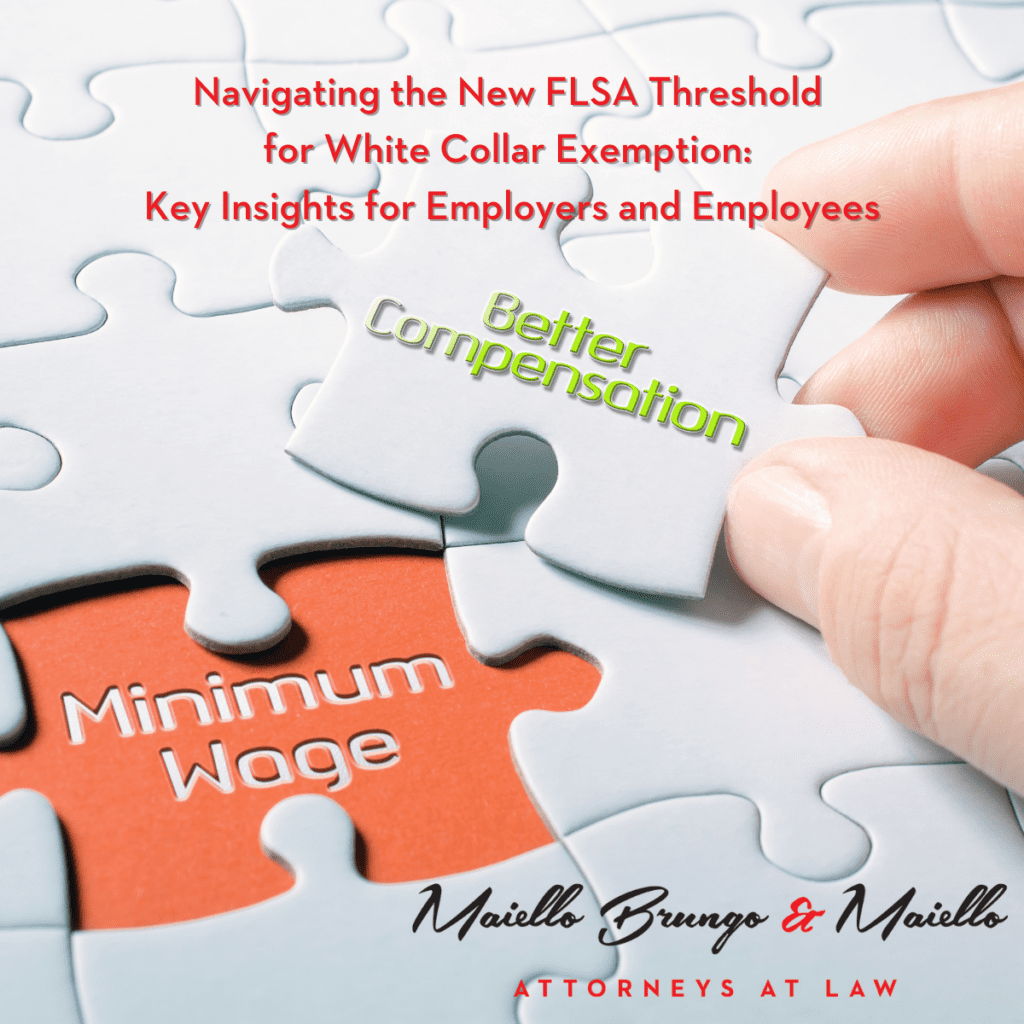The Fair Labor Standards Act (FLSA) mandates that certain employees receive overtime pay for all hours worked beyond a 40-hour workweek. In response to the evolving needs of today’s workforce, the FLSA has recently undergone significant modifications, particularly affecting white-collar employees. The Department of Labor (DOL) introduced new overtime regulations on April 23, 2024, which went into effect July 1, 2024. The regulations are aimed at providing better protection for wage earners by increasing the minimum salary level threshold for overtime eligibility.
Here’s what you need to know about these changes and their impact on employers, especially in educational settings such as school districts.
Unsure if Your School Staff Qualifies for Overtime? Ask MBM Law Now!
Increased Salary Threshold for Overtime Eligibility
Effective January 1, 2020, changes were made to allow employers to use nondiscretionary bonuses and incentive payments, including commissions paid at least annually, to satisfy up to 10% of the standard salary level.
The minimum salary level for exempt employees increased to $684 per week ($35,568 annually). This means employees earning less than this amount are now eligible for overtime pay regardless of their job duties, except teachers.
Future increases are scheduled: $844 per week ($43,888 annually) beginning July 1, 2024, and $1,128 per week ($58,656 annually) starting January 1, 2025.
Who Qualifies for Professional Exemption Under FLSA?
Administrative Duties Test
The new administrative duties test requires that the employee’s primary duty involves office or non-manual work related to management or general business operations, with a shift from “customarily and regularly” exercising discretion to exercising discretion in “matters of significance.”
Professional Duties Test
The professional duties test now includes separate standards for learned professionals, creative professionals, doctors, lawyers, and teachers. For teachers, the primary duty must be teaching or related activities in an educational setting.
Have questions about the FLSA? Contact the legal team of MBM Law for solutions.
FLSA Overtime Exemptions in Pennsylvania
No Highly Compensated Employee Exemption
Pennsylvania does not recognize the highly compensated employee exemption which, under federal law, exempts employees earning above a certain salary from overtime pay. The thresholds set by federal regulations will be $132,694 annually as of July 1, 2024, and $151,164 as of January 1, 2025, but these do not apply in Pennsylvania.
Computer Employee Overtime Pay
Unlike federal regulations, Pennsylvania law requires overtime pay for computer employees unless they qualify for another exemption under state law.
Implications of FLSA Changes for School Districts
School districts must be vigilant to ensure compliance with these updated overtime regulations to avoid penalties. Here are key points to consider:
-
Distinguishing Exempt and Non-Exempt Employees
Teachers are exempt from overtime pay regardless of their salary if their primary duty is teaching. However, classroom aides, special education aides, childcare providers, health room aides, and non-registered school nurses are eligible for overtime if their salaries fall below the threshold.
Other non-exempt employees include data input operators, secretaries, hall and lunchroom monitors, and security personnel.
If your school district needs help in complying with overtime regulations, contact the Education Law team at MBM Law.
-
Handling Multiple Positions for Non-Exempt Employees
Non-exempt employees working multiple non-exempt positions for the district must have their total hours tracked accurately to ensure overtime pay is properly calculated for work exceeding 40 hours per week.
-
Voluntary Overtime and Employer Knowledge
Employees are entitled to overtime pay for any hours worked beyond the 40-hour week, even if they volunteer to work extra hours or work offsite, provided the employer knows or has reason to believe that such work is being performed.
FLSA Compliance for Employers: Ensuring Fair Pay and Avoiding Penalties
With the DOL’s increased focus on enforcing these regulations through audits, school districts are advised to:
- Establish or review existing policies on overtime authorization and approval.
- Conduct regular in-house audits of records to ensure compliance with overtime pay requirements.
- Proactively enforce overtime policies to mitigate the risk of non-compliance and potential penalties.
Navigate FLSA Changes with Confidence
The updated FLSA regulations represent a significant shift in how overtime eligibility is determined, particularly for white-collar employees. Employers, especially in school districts, must adapt to these changes by reassessing their payroll structures and ensuring compliance with both federal and state laws. By understanding and implementing these regulations effectively, employers can better manage their workforce, avoid legal pitfalls, and ensure fair compensation for their employees.
For detailed guidance on navigating these changes and ensuring compliance, contact MBM’s Education Lawyers at 412.242.4400. Our experienced attorneys are here to help you craft and review your employment policies to align with the latest regulations.


